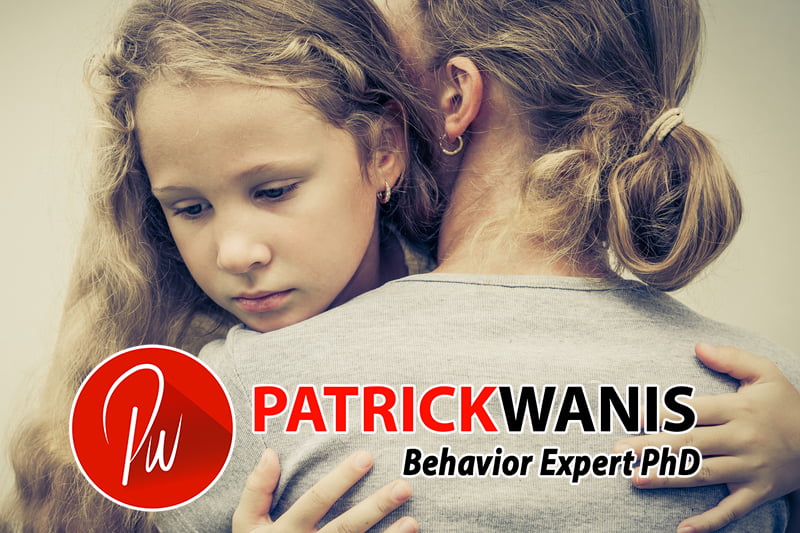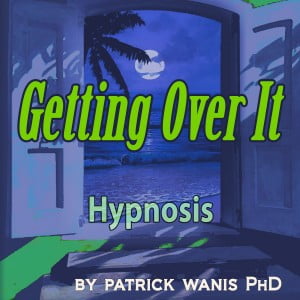
In this week’s Success Newsletter, I would like to discuss why some people create situations to test your love for them.
First a quick update:
“Why women love bad boys”
Read my insights into the key motivations women are attracted to bad boys.
And watch the interview I gave to Australia’s The Morning TV Show.
“The fear of commitment”
What’s behind the fear of commitment? Why are you attracted to players? How can you deal with the power struggle in relationships? Read the transcript of the interview I gave to Lucia, host of The Art of Love Radio Show.
Now, let’s talk about how to respond when someone tests your love for them.
A few years ago, The Montel Williams TV show sent me to Michigan to spend four days with a family to help them through a crisis. This was a blended family – the husband has two daughters, the wife one daughter and the husband and wife have a 2-year-old daughter together. The two daughters were violent towards the step mother and their step sister. One of them, Chelsea, tried to strangle her step sister three times and kicked her step mother in the stomach when she was pregnant. Chelsea is just 14! She had the appearance of a thirty-year-old woman who has been a junkie – almost no life in her tiny, skinny body which looked like the body of an eight-year-old girl. Her eyes sunken, wearing heavy black eyeliner, and emanating such an overwhelming sadness that the TV crew and producers wanted to just cry and hold her.
Chelsea and her sister were abused and sexually abused by various family members (not dad or the step mother.) It is not truly possible for anyone other than the victim to fully understand the pain and resulting effects of abuse on a child. Yes, I can write and reveal some of those symptoms and effects but they cannot reveal the real or full extent of the pain or trauma. Only the victim knows the depths of the pain.
Abuse will also create anger, fear, feelings of betrayal, the constant feeling of imminent danger and the loss of trust.
In a very emotional session I did with Chelsea to help her to release some of that pain and to feel safe again, Chelsea used the expression “the trust went away” as she revealed the abuse. (You can read more about that session and experience here)
Trust is a key component of love and when a person doesn’t feel safe and doesn’t feel he or she can trust the other person then there is no love.
Because of the abuse Chelsea suffered from other people, she was angry at everyone and didn’t trust anyone – not even her dad. Accordingly, I set out to help the family rebuild the bonds of trust; and as part of the healing process, I took them rock climbing.
I paired up the children and adults. And with the deliberate intention of instilling fear in everyone, I made it clear just how dangerous this exercise and activity was. “You have to concentrate, focus and work together. If someone makes a mistake, there could be a serious accident, and we don’t want anyone bleeding or to have to go to hospital today.”
Only by instilling fear could I create the need for real trust between the parent and each child; only by forcing someone to break through their fear and trust the other person could I create a bond between the parent and child.
Dad and the eldest daughter were now busily preparing and putting on their gear and harnesses. Within just a few minutes, which felt like moments, Chelsea was standing right by my side, almost clinging to me. She was shaking, trembling and crying.
Again with deliberate intention, I said loudly:
“Can anyone see what is happening here?
Look! Chelsea is frightened and shivering next to me.
Where is mom? Where is dad?”
Quickly, mom came running to Chelsea and tried to put her arms around her.
Chelsea immediately pushed away her stepmom.
‘You see, Patrick. I run to her and she pushes me away’ the mom said to me.
“This is not about you” I said with a stern voice.
Mom tried a second time and Chelsea pusher her away a second time.
‘See, Patrick. She pushes me away.’
“This is not about you” I said again. “Do you remember our session yesterday, when you told me how you never felt safe around dad and you never felt safe or could trust anyone?”
‘Yes.’
“Well Chelsea doesn’t feel safe and doesn’t believe she can trust anyone. She is not rejecting you, she is rejecting love. She doesn’t feel or believe that she can trust anyone.”
Mom made a third attempt and this time she held Chelsea tight and wouldn’t let go. Chelsea was crying in mom’s arms and eventually she relaxed in her arms.
Chelsea needed to know that she could trust again, that she was safe and that she was loveable no matter what. Chelsea needed to know that her mother loves her unconditionally.
Abused children have a problem bonding and trusting people. When a person (child or adult) has experienced rejection, betrayal, criticism or abuse in any form, he or she will test your love. She will need and demand convincing that she is loveable, good enough and that you love her unconditionally.
Chelsea was angry at the world and particularly at women because until this moment, she had felt betrayed by the very people that were supposed to nurture and protect her. And she expressed the anger with physical violence, driven by deep pain and a desire to lash out at the world that had let her down and betrayed her.
Adults (who have experienced abuse, rejection or betrayal) will test your love by pushing you away – not physically, but emotionally pushing you away. They might put up walls, try to sabotage the relationship or even put themselves down in a verbal manner, hoping that you will reassure them.
The only way to convince someone of your love is to let them know that it is unwavering; you are here no matter what; you are not going away and; your love is unconditional. Expressing this is particularly critical and crucial between a parent and a child.
We only know we are truly safe when we feel loved and when we know we are loved no matter what!
If you need help to get over a betrayal, breakup or rejection, use my program – “Getting over it – Breakups, Betrayals and Rejection”.
You can comment on this newsletter directly below.
If this newsletter was forwarded to you and would like to receive all of my newsletters please enter your email address on the home page.
I wish you the best and remind you “Believe in yourself -You deserve the best!”
Patrick Wanis Ph.D.
Celebrity Life Coach, Human Behavior & Relationship Expert & SRTT Therapist
www.patrickwanis.com
Anointed “The Woman Expert” by WGN Chicago, Patrick Wanis PhD is a renowned Celebrity Life Coach, Human Behavior & Relationship Expert who developed SRTT therapy (Subconscious Rapid Transformation Technique) and is teaching it to other practitioners. Wanis’ clientele ranges from celebrities and CEOs to housewives and teenagers. CNN, BBC, FOX News, MSNBC & major news outlets worldwide consult Wanis for his expert insights and analysis on sexuality, human behavior and women’s issues. Wanis is the first person ever to do hypnotherapy on national TV – on the Montel Williams show.

